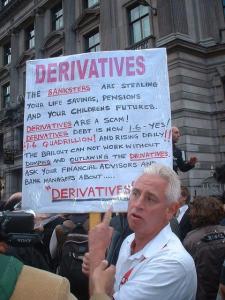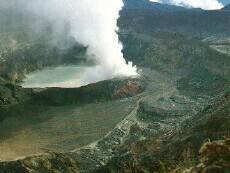Basel Banking Committee Ready to “Strangle” Economy
September 13, 2010
real-agenda.com
The World Financial Order is almost complete. New measures will keep bailout monies in banks’ coffers, increase interests on loans while reducing credit availability.
A group of un-elected regulators has come to an agreement on how to strangle the global economy even further, while presenting their package of measures as “saving” policies” for a coming financial crisis. The Basel Committee on Banking Supervision -current owners- established more rules to exercise tighter controls on banks and the very financial system they managed to break by design.
At the top of the list, Jean Claude Trichet, warns that the no implementation of these policies would let banks free to do anything they want -he himself is a banker- and that the new rules would secure bank reserves for difficult financial times. The package of rules was adopted on Sunday, and it has a very clear goal: “To protect International Economies”. This confirms the group’s intention to establish a global financial system headed by no other than themselves. Such Order would abide by their rules no matter what effects such rules have over individual national economies.
According to their published document, banks will have to triple their cash reserves -from 2 to 7 percent- which in their minds would act as a cushion for difficult times or when banks invest in junk financial products. That amount is in itself ridiculous, if one takes into account that banks’ investments in dubious financial products is many times larger than 7 percent. What this measure will do is to give banks an excuse to increase interest rates on loans and reduce their loan spending programs. The reduction in available credit will achieve a goal the bankers had yearned for and that could not accomplish through the failed cap & trade fraudulent scheme: to bring global economic activity to a halt.
“The agreements reached today are a fundamental strengthening of global capital standards,” said Jean-Claude Trichet, president of the European Central Bank and chairman of the banking supervision group. Trichet commanded the group dismissing some bankers concerns that these new measures will require them to curtail credit, which in turn would cripple economic growth. He said the new rules would “contribute to long-term financial stability and growth will be substantial.” Other bankers sided with Trichet, saying the modest effect on growth or borrowing would be a small price to pay for a less explosive financial system.
What these new rules would achieve -if anything- is the legalization of bad investments, as banks will not have to worry about how to pay for loses. They will have large amounts of money from investors to cover their backs. In addition, banks will continue to count on nation states to make up for any shortfalls, as more bailouts for troubled banks have not been taken off the table. The new rules issued by the group that includes former Goldman Sachs executive Ben Bernanke, will be approved in November by the G-20 before they are handed over to individual countries before they become binding. Nation-states will have until January 1, 2013 to adapt to the new rules.
“Banks will unarguably be safer institutions,” said Anders Kvist, representative of SEB, a bank that operates out of Stockholm. Shouldn’t Nation-states have the prerogative to regulate banks operating in their territories? Meanwhile, bankers continue to point out the new measures will reduce the amount of available credit for borrowers but were not bothered by the other side of the coin: Centralized Control. That is what this is all about.
The Basel Committee on Banking Supervision, again, a group of un=elected bankers mandates banks to “protect themselves” when they invest in financial instruments of dubious origin. How about letting banks operate freely and collapse if they have to, due to their irresponsible investment practices? The new provisions, called a leverage ratio, will obligate banks to hold reserves against all their money at risk. That is like the nanny global order telling their children not to pick their noses in public.
Of course, there are those to whom global financial regulation is never enough. Some G-8 countries were pushing for an additional 2.5 percent increase, during “good times” of economic overheating. According to the document released by the group, the rules would be adopted gradually to give banks time to adjust. Some of the measures will not take effect until 2019, with banks having to start raising cash in 2013. Too little too late?
The Basel Regulators left the door open to imposing stricter rules on “important” banks, whose problems -irresponsibilities- can infect the whole financial system. The banksters’ representatives in the US -The FED, FDIC- issued a common statement saying the agreement is a significant step towards reducing the occurrence of future financial crises. Although Nation-states still have the ability to reject these new regulations and create and approve some of their own, the international financial order has been clear that failure to adopt their newest package of rules will be punishable with harsh changes in credit availability, large increases in interest rates and overall restrictions for financial aid. Once the new polices are adopted they become binding and countries cannot abandon them.
In the meantime, the Basel group will allow banks to continue to receive government bailout money to raise capital through 2017. Those banks that are not capable of raising enough cash may be obligated to merge or perish as part of the consolidation and control package the regulators have in mind. Only in the US, it is estimated that some 400 banks are on the brink of failure.
Deutsche Bank in Frankfurt said it intends to sell shares for 9.8 billion euros to increase its reserves. Other banks that will do the same include Société Générale -a bailed out bank- in France and Lloyds in Britain. The rules imposed by the Basel Group also include paying banks -with taxpayer money- to dispose of toxic assets such as derivatives.



